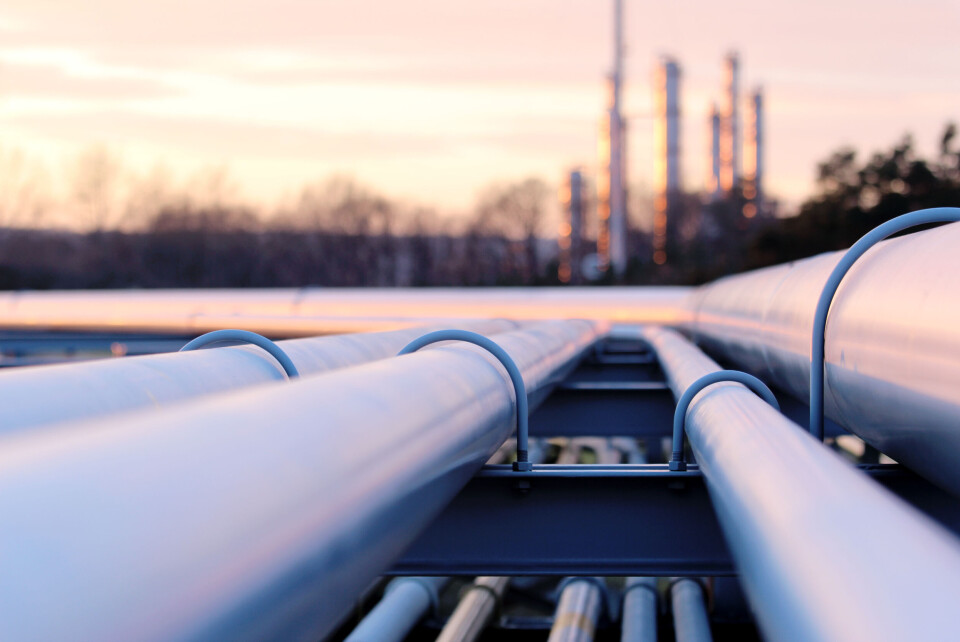-
Travellers risk extra costs under new Eurotunnel ticket rule
Some fare options are less flexible and less forgiving of lateness
-
May will be difficult month for train travel in France, warns minister
Two major train unions are threatening to strike and are ‘not willing to negotiate’, he says
-
Larousse dictionary adds 150 new French words - which ones do you know?
The new words come from trends in sport, nature, leisure, food, medicine, and the rest of the French-speaking world
France is at risk of energy shortages and rationing, says minister
A scenario in which Russia cuts off its gas supply to Europe is now probable and imminent, said finance minister Bruno Le Maire

People must think about consuming energy differently in the coming months as the risk of shortages and potential rationing grows with Russia now highly likely to cut off all of its gas supplies to western Europe, France’s finance minister has said.
Read more: France prepares measures to prevent winter energy shortages
“We’re at the most difficult point; we will have to make brave choices,” Bruno Le Maire said during a press conference in Aix-en-Provence this weekend.
He said European nations should brace themselves for a “total cut-off” of Russian gas, which he said was currently “the most probable scenario”.
He warned that businesses and individuals will likely need to reduce their consumption to prepare for such a situation this coming winter and priorities would need to be identified.
‘Selective power cuts, reducing consumption’
This came as Prime Minister Élisabeth Borne stated: “We should not hide ourselves from the truth, the seriousness of the situation: a scenario in which Russia cuts gas supplies is credible.
“There could be a strain on gas [supplies] this winter.”
“Will we be able to continue heating our swimming pools? [...] We cannot continue to heat [our homes] and move about as if nothing were happening,” Mr Le Maire said.
“We must get ready for battle now in terms of organisation, selective power cuts, restraint, reducing consumption… we must make decisions now.”
He stated that the government was studying the energy use of specific companies and industries, considering how they may cut down their usage.
Some sectors – such as manufacturing – would have their supplies protected, while others may be asked to slow down consumption or even stop completely at given times.
In this way, the government would prioritise maintaining household energy supplies.
Today (July 11), the Nord Stream 1 natural gas pipeline – the most important supplier for western Europe – was switched off for maintenance works lasting 10 days. Many believe Mr Putin will not switch it back on later this month.
France only obtains 17% of its gas from Russia, so reducing consumption should help it to manage any supply cuts which do occur.
Other countries which depend more heavily on Russian gas, including Germany – which imports 65% of its supplies from Russia – and Italy – 43% – could find themselves in a more serious situation.
EU looks to reduce dependence on Russia
In response to the threat of energy shortages as a result of Russian cuts to oil and gas supplies, the EU voted in May to reduce its Russian oil consumption by 90% by the end of the year, and to require its members to fill their gas reserves to at least 80% capacity by November.
Read more: EU votes to reduce Russian oil imports by 90% before 2023
The French government is now calling for suppliers to get their reserves “near to 100%” by the autumn.
France’s gas supplies are currently 66.9% full, while at the same time in 2021 they were only 53.3% full.
“In terms of electricity, if everything goes according to EDF’s projections, production should grow stronger as” the 12 nuclear reactors which are currently suspended reopen, Ms Borne said.
The CEOs of the leading French energy companies, TotalEnergies, Engie and EDF, have already called on individual and business customers to reduce their consumption in the coming months.
Read more: French energy companies call for immediate action to cut back on usage
Will government energy bill support continue?
The finance minister also refuted suggestions that the bouclier tarifaire energy tariff freeze would continue beyond the end of this year.
The bouclier tarifaire is “already causing an additional debt of €12billion [...] The alert threshold for public finances has been reached,” he said, adding that without the price cap, “people in France would have paid 30% more for electricity and 50% more for gas.”
Ms Borne stated: “We must move from generic mechanisms to more targeted mechanisms,” in the same way as the government’s current 18-cent-per-litre fuel discount will now be replaced by a specific aid for low-income households from October.
“A French person who drives a 4X4 around Deauville does not need a fuel discount. This measure must be reserved for those who do need it,” Mr Le Maire said.
Read more: Who will qualify for France’s new fuel aid for low-income drivers?
“From January 2023, we must [also] focus [energy] price caps on households which really need them,” Mr Le Maire said.
“This targeting will relate both to the freeze on gas tariffs and on electricity tariffs,” which will come to an end on December 31.
On the subject of the renationalisation of EDF, Mr Le Maire promised to “take things in hand”, adding “we urgently need to get EDF back on track. The priority is to find a new direction. I hope that it will be ready by the rentrée, the earlier the better.”
Read more: EDF renationalisation plan: will it lower bills for users in France?
As it develops plans for the future of EDF, the government is also looking to move France away from its dependency on fossil fuels.
“From one moment to the next, you see the spending power of millions of people in France cut because crude oil prices surge: we must get out of that vulnerability,” Ms Borne said.
Related articles
Tax, security, spending power: PM lays out plans for new Macron term
Recap: France's nine measures to boost residents' spending power
France extends energy price cap measure to the end of 2022
























